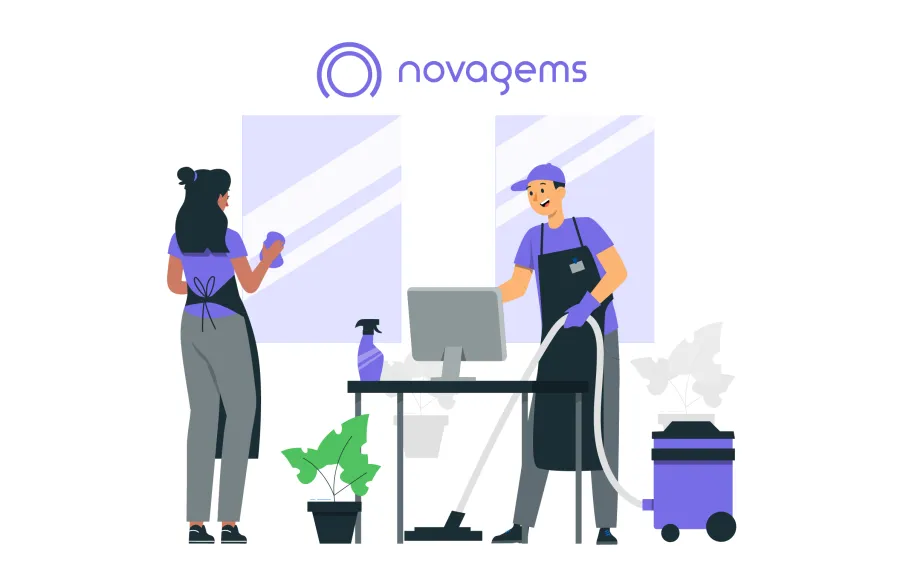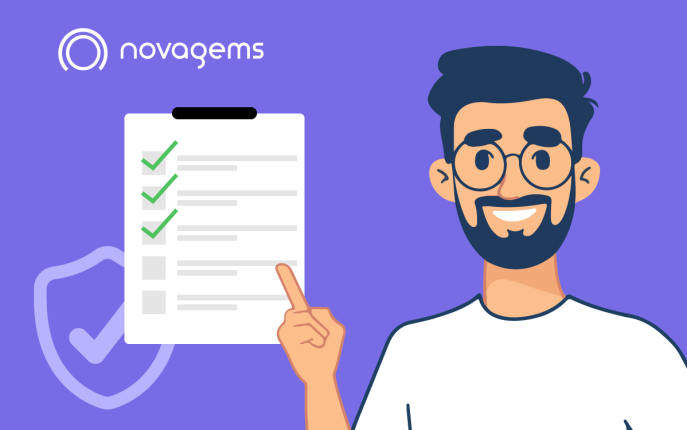Maximizing Security: Foolproof Methods To Prevent Missed Patrols
Sun, Jun 11, 2023
Read in 9 minutes

Missed patrols can compromise the overall security of a location, putting people, property, and valuable assets at risk. It’s important for security teams to follow certain practices to ensure that no patrols are missed. Below are some foolproof security patrol procedures to help security officers stay on top of their duties and keep operations secure.
Crime can be avoided if you have mobile patrols and highly effective security guards. Proactive measures to avoid missed security patrols include having regular checkpoints, monitor compliance, and install highly efficient guard tracking systems.
What Is The Role Of A Security Guard?
The role of a security guard is critical to maintaining safety and order in various settings, from corporate offices to construction sites. Security guards are responsible for a wide range of duties that help protect property and people.
- Monitor and Patrol Areas: Security guards conduct regular patrols to check for signs of trouble. Ensuring that no suspicious activities occur in their assigned areas. They need to make proper rounds so that they can cover the areas that are easily missed.
- Respond to Incidents: Whether it’s an emergency like a fire, a medical issue, or a security breach. Guards must be prepared to react quickly and follow the appropriate steps to handle the situation. After the situation, security guards will need to make a proper record of the same too. This record helps in checking for any trends that might happen in the future.
- Enforce Rules: Guards are tasked with enforcing rules and regulations set by their employer. This includes ensuring restricted areas remain off-limits to unauthorized personnel and addressing any violations.
- Deter Criminal Activity: By maintaining a visible presence, security guards can deter potential criminal activity. Criminals are less likely to act when they know an area is being monitored by an active security force. With proper security patrol techniques in place, any criminal will hesitate to breach the area. Since they will know that a security guard will be doing rounds.
- Assist Visitors and Employees: Guards often assist people by providing directions, answering questions, and helping maintain order within the property. They play a supportive role that helps make the environment safe and secure for everyone.
Importance of Safety While On Patrol
Safety is the top priority during any patrol. Ensuring the safety of both the guards and the people they are protecting is crucial to the overall security operation. Focusing on safety measures ensures that patrols are conducted without unnecessary risks.
- Wear Proper Safety Gear: Depending on the location, security guards may need to wear protective gear such as hard hats, reflective vests, or steel-toe boots. Having the right equipment minimizes the risk of injury on the job.
- Stay in Communication: Guards should always be equipped with radios or mobile devices to stay in touch with their team and supervisors. This ensures that help can be reached quickly if any issues arise.
- Follow Safety Protocols: Guards should always follow established safety protocols, such as checking in at specific intervals or using security monitoring tools to track their patrol routes.
- Inspect Equipment: Before starting a patrol, it’s essential to inspect any equipment that will be used. This includes flashlights, radios, and surveillance tools. Properly functioning equipment helps security guards remain prepared and proactive.
- Avoid High-Risk Areas if Necessary: Some areas of the site may pose more risks than others, like construction zones or areas with hazardous materials. When necessary, guards should avoid these high-risk zones or take extra precautions to patrol them safely. With security guard patrol procedures a security guard can carry a proper round of the area.
By keeping safety in mind during patrols, security officers can ensure that they complete their duties effectively without putting themselves or others in harm’s way.
What Is An Efficient Guard Tracking System, And How It Helps
When you have chosen to incorporate strategies for ensuring comprehensive security patrols you have a step towards making your business successful. An efficient guard tracking system comes with many features that are helpful in elevating your day to day operations.
The most sought after feature is scanning QR codes during their patrolling. If the guard patrolling system provides this feature then during the patrol the security guard can easily scan the QR codes and make a note of it. This gives him the proof that the tour is being done and the premise has been secured.
Another feature that can be helpful is GPS Tracking. This will allow the management to see if the guard is taking proper tours of the area he is supposed to patrol. Through GPS trails, the managers can keep track of the total tours and patrolling done during the shift.
Mobile applications and guard tour systems provide powerful tools for preventing missed patrols. Equipping security personnel with mobile apps allows them to log their activities, report incidents, and capture evidence through photos or videos. These apps enable supervisors to monitor patrols remotely and receive real-time updates. Guard tour systems with NFC or QR code technology can ensure that checkpoints are scanned or tapped during patrols, leaving a digital trail of activities.
This technology-driven approach enhances accountability, increases visibility, and greatly reduces the chances of missed patrols.
Foolproof Methods To Prevent Missed Patrols
-
Clear Patrol Procedures:
Establish clear and well-defined patrol procedures that outline the designated routes, and checkpoints to be covered during each patrol. This provides security personnel with clear guidelines and minimizes the chances of missing any areas. Ensuring thorough security patrols comes automatically when you have clear patrol procedures.
-
Always Be Aware of Your Surroundings
Security guards must remain vigilant at all times. Being aware of what’s going on in the environment is key to spotting potential threats before they escalate. This means keeping a close eye on the surroundings and being mindful of any changes that might signal a problem.
-
Keep a Lookout for Suspicious Activity
One of the core responsibilities of security guards is to detect suspicious activity and address it quickly. Unattended bags, people loitering in restricted areas, or unusual noises are all examples of things that guards should keep an eye out for. Reporting suspicious behavior promptly can prevent serious incidents from occurring.
-
Robust Scheduling and Assignment:
Implement a reliable scheduling system that assigns security personnel to specific patrols and ensures proper coverage. Use technology-driven tools to streamline scheduling processes, allocate resources efficiently, and avoid scheduling conflicts or gaps.
-
Training and Skill Development:
Provide comprehensive training to security personnel on patrol procedures, emergency response protocols, and the use of technology tools. Continuous skill development enhances their abilities to carry out patrols effectively and reduces the likelihood of missing critical areas.
-
Technology-enabled Tracking Systems:
Utilize guard tracking systems with GPS or RFID technology to monitor patrol activities in real-time. These systems allow supervisors to track security personnel’s locations, verify checkpoint visits, and receive alerts if any checkpoints are missed or delayed. You need to have comprehensive approaches to avoid missed security checks and that can be achieved with technology.
-
Regular Supervision and Communication:
Maintain regular communication channels with security personnel to ensure they are aware of their responsibilities and any changes to patrol schedules. Supervisors should conduct periodic checks to monitor patrol activities, address any issues promptly, and provide guidance or support as needed.
-
Stay Calm and in Control During Emergencies
Emergencies are unpredictable, and staying calm is essential for handling them effectively. Whether it’s a medical emergency or a security breach, security guards must keep their cool, follow their training. And coordinate with their team to resolve the situation as quickly as possible.
-
Follow Your Security Guard Protocol
Each security company has specific procedures that its guards must follow. Adhering to these protocols helps maintain consistency and ensures that no crucial steps are overlooked during patrols. Guards must ensure they are checking all assigned areas, following set timelines, and reporting any issues according to the established rules. It’s not necessary that patrol methods that one company uses will work for another too. So it is always wise to make your own security patrol procedures and follow them.
-
Be Aware of Hazardous Areas on the Job Site
Every job site has its own set of hazards, whether it’s a slippery floor, construction zones, or areas where heavy machinery is in use. Guards need to stay informed about the risks specific to their site and take precautions when patrolling these areas.
-
Performance Evaluation and Accountability:
Implement a performance evaluation system to assess the effectiveness of security personnel in carrying out patrols. Establish clear metrics for evaluating their performance, such as adherence to patrol procedures, completion of checkpoints, and response to incidents. Regular evaluations promote accountability and provide an opportunity for improvement.
-
Incident Reporting and Documentation:
Encourage security personnel to promptly report any incidents or observations during their patrols. Implement an incident reporting system that allows for detailed documentation, including incident descriptions, timestamps, and supporting evidence. This helps in analyzing incidents, identifying patterns, and improving patrol strategies.
-
Use Common Sense
While formal training is important, a lot of security work comes down to using common sense. Trust your instincts. If something feels off, investigate further or call for backup. Being proactive and alert can make a big difference in preventing incidents. The basic requirement a security guard must have is knowing- how to patrol.
-
Be Prepared for Anything
Being prepared is key to success in security work. Guards should carry essential equipment such as flashlights, radios, and first-aid kits. They should also stay informed about the latest security threats or changes in their patrol areas. Proper preparation ensures that guards can handle any situation that comes their way.
-
Regular Audits and Quality Checks:
Conduct regular audits and quality checks to ensure that patrols are being carried out as per the established procedures. These audits can help identify any gaps, issues, or areas for improvement in the patrol process and allow for necessary adjustments to prevent missed patrols. Preventing missed security checks with reliable methods will be made easier if proper checks are being conducted.
Guard tracking systems provide a means to assess the performance of security personnel. Supervisors can analyze patrol data, including patrol duration, frequency, and adherence to checkpoints, to evaluate individual or team performance. This evaluation promotes accountability and allows for targeted training or corrective measures to prevent missed patrols in the future.
Closing Thoughts
In summary, a guard tracking system ensures real-time monitoring, verification of checkpoints, incident reporting, emergency response capabilities, improved communication, and performance evaluation. By leveraging these features, businesses can significantly reduce the risk of missed patrols, enhance overall security, and maintain a proactive approach to safeguarding their premises.
By focusing on awareness, safety, and protocol, security guards can prevent missed patrols and ensure the safety of the areas they protect. A well-executed patrol is one where the guard stays alert, follows procedures, and is prepared for any challenges. When these elements come together, the risk of missed patrols and security breaches is significantly reduced. Making the environment safer for everyone involved.
Get a Free Trial
Sign up For Newsletter
Latest Blog Posts
Get Started
Start being productive & grow your business
with Novagems




